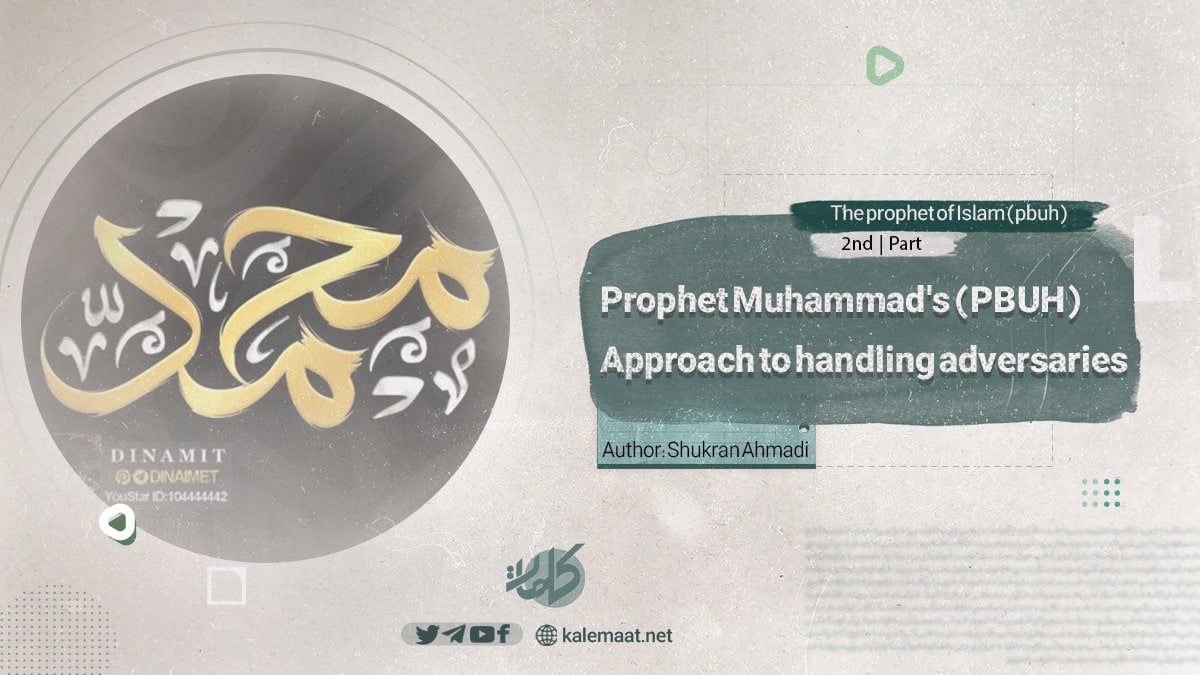Author: Shukran Ahmadi
Prophet Muhammad’s (PBUH) Approach to handling adversaries (2nd part)
The definition of the “Opposite” in words and terms
Opposite in the word: It is something that is “inconsistent”, “unbalanced” and “contrary”.
And in the term: opponent is said to someone whose theory and opinion are against the topic raised and the opinions of others.” Or they say the opponent to someone who “goes on a path contrary to the path of others”.
The opponents of the Prophet, may Allah bless him and grant him peace, in one division
The change of the power structure in the Arabian Peninsula by the Prophet of Islam, the result of which was the transformation of the tribal system into an Islamic system, faced with various incompatibilities in the form of numerous groups, who, according to the environmental and time conditions and taking into account the characteristics of the opponents, adopted different policies in dealing with them, that in a general classification, the groups opposing the Prophet can be divided into three categories:
polytheists:
The polytheists and nobles of Mecca were the first group that formed a big and strong barrier in the way of the goals of the Prophet, PBUH, who showed their stubborn opposition by holding power in the 13 years of the Meccan era and also organizing major wars during the reign of the Prophet, peace and blessings be upon him, in Medina.
Jews:
The peak of their enmity was with the Prophet (peace be upon him) and the newly established Islamic government in Medina. At first, this group signed a peace and coexistence pact with the Prophet, peace and blessings be upon him, and pledged to support Muslims; But in spite of this commitment, they became incompatible with the Prophet’s government and tried to lead Muslims astray and mislead the religion of Islam and the Prophet, peace and blessings of Allah be upon him.
Hypocrites:
This group keyed their enmity with Islam and the Holy Prophet (peace be upon him) from the very beginning of the formation of the Islamic call. The hypocrites claimed to believe in Allah, and on the surface believed in the mission of the Prophet, peace and blessings be upon him; But there are many differences between the outward faith and the heart.
The general policies of the beloved Prophet may Allah bless him and grant him peace, in dealing with the opposition groups in the 13 years of Mecca and the 10 years of Medina had differences. Most of his policies in Mecca, considering the environment and the level of his ability, were accompanied by a peaceful approach, while in Medina, the situation was different. In any case, tolerance was the character of that Prophet, peace be upon him; Because this characteristic is one of the moral principles of Islam that plays an important and fundamental role in improving social relations.
If this principle of value is used correctly and appropriately in the society, many deviations, such as: breaking relationships, malice and enmity, will be prevented, and the members of the society will live with more mental peace, and since the Prophet of Islam, peace and blessings be upon him, practiced it in his life. And made it his method, many enemies and fighters realized and acknowledged the truthfulness of his prophecy because of his forgiveness and tolerance.



